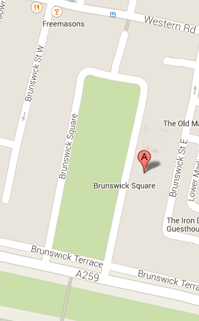Little Celia's Gift to the Poor.
Character:
Mrs Emma Jane Simpson
My Regency Diary
October 14th 1831
October 14th 1831
Well, well well and mercy me! It marvels me to ponder on the ways of the world!
The dastardly husband of my little friend Celia languishes in Lewes awaiting his fate; Little Celia herself be unquestionably at peace now - but still her memory lingers.
On Wednesday afternoon just passed, there were a knock upon my kitchen door and in comes yet another little lady. Not nigh so small as young Celia a'course, for she were small beyond all measure. Yet it were all because of Celia that this little lady come a-visiting.
"Madam" says she, "'tis all through Mrs. Celia Bradbury that I 'ave come to pay my compliments."
Well, I were right confabulated, for what could little Celia want of me now that she be taken into the Great Beyond? Still, I bade Daft Molly fetch out a warm batch of my scones, along with some new butter and my cherry preserve; and to boil a kettle for some tay (I have at last told Eliza that I cannot be doing with "tea". Tay it were always to me, and tay it will always be.)
'Twas as she be sipping her second cup that Mrs. Walters - for such she hath introduced herself - let her business be known.
She had made the acquaintance of Celia and her wastrel husband when both had been lodged in the old Poorhouse in Market Street, wherein this Mrs. Walters were housekeeper. She it had been who had chastised and threatened those who had played unkind tricks upon my old friend.
By pure happenstance, she and Celia had met together in the days before the events I have hitherto described. Mrs. Walters, whose knowledge of the ways of the world are superior by way of experience, had striven mightiliy to persuade Celia to cut all ties with her former husband. But there, such was the fear and loathing for the Poorhouse felt in the breast of all goodwives, that Mrs. Walters could not persuade Celia to engage in any behaviour that could land her up inside that dread place. Such fear of incarceration had little Celia that tears came into her eyes and her whole tiny body shuddered and shook with fear.
She had felt herself without choice once with child, and thus hoping for her child never to know the misery its mother had encountered in the Poorhouse, had accepted her husbands summons that fatefull weekend.
"T'aint right!" said Mrs. Walters, slamming down her cup into its dainty saucer as if she were wont to break it. "T'aint fair at all that a little creature with no malice in her soul should be so a-feared of the Poorhouse that she be dead!" She sniffed daintily into her large cambric handkerchief before continuing. " 'Tis said that the Poorhouse were intended to give succour to the poor; to aid them. Wherefore then, be people so afeared that they would rather court death than enter its portals?"
For Mrs. Walters hath been offered a position in the New Poorhouse. Well, 'tis not new any more, for 'twas there long before we arrived from Tunbridge. But most folk know better the old workhouse in Market Street, afore this big new modern building were put to the purpose in Church Street. She hath been asked to become Matron and, hearing of my skills from Celia, and knowing Celia's fondness for me, concocted a plan to do the best she could possibly do for all inmates; a plan for which she needed my help.
So, together we sat, head down, over the kitchen table in the dying light to make sure we did what we could - thankfull indeed that the family were all away, or we never could have hatched our plan else.
At length we had finished and Daft Molly set to refreshing our tay with some more substantial food now that the dining hour had arrived. We looked at each other and smiled in satisfaction.
We had done our best. What we had done this afternoon would last long after not just Celia's bones, but e'en our own, had crumbled to dust. Mrs. Walters, in her new post, would see to it that no more would bully-boys make lives misery under her domain. I, so used to providing nourishing fare, had caused a weekly menu to be written (with the amounts of both food and costs needed inscribed as well!) that ensured man, woman and child would be well, and fully nourished.
Between us we had done our best to see that, from this day forward, no-one would ever face Death rather than go to the Poorhouse in Brighthelmston. We should have the best nourished, most kindly treated inhabitants of any Poorhouse in the land.
And may a kindly god bless the soul of poor Celia Bradshaw forevermore.


